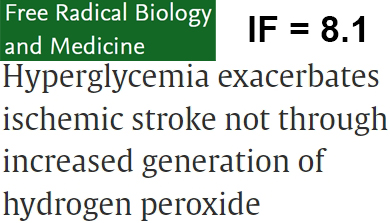Press-room / news / Science news /
Hyperglycemia exacerbates ischemic stroke not through increased generation of hydrogen peroxide
Diabetes is one of the significant risk factors for ischemic stroke. Hyperglycemia exacerbates the pathogenesis of stroke, leading to more extensive cerebral damage. It is logical to assume that more extensive tissue damage during ischemia should somehow correlate with the severity of oxidative stress.
A team of scientists from the IBCh RAS and other Russian institutions record for the first time the real-time dynamics of H2O2 in the brain tissues of rats during development of ischemic stroke under conditions of hyperglycemia. To accomplish this, a highly sensitive HyPer7 biosensor and a fiber-optic interface technology were used. Authors demonstrated that a high glycemic status does not affect the generation of H2O2 in the tissues of the ischemic core, while significantly exacerbating the consequences of pathogenesis. For the first time using Raman microspectroscopy approach, scientists have shown how a sharp increase in the blood glucose level increases the relative amount of reduced cytochromes in the mitochondrial electron transport chain in neurons under normal conditions in awake mice. The results are published in Free Radical Biology and Medicine journal.

august 9, 2023


